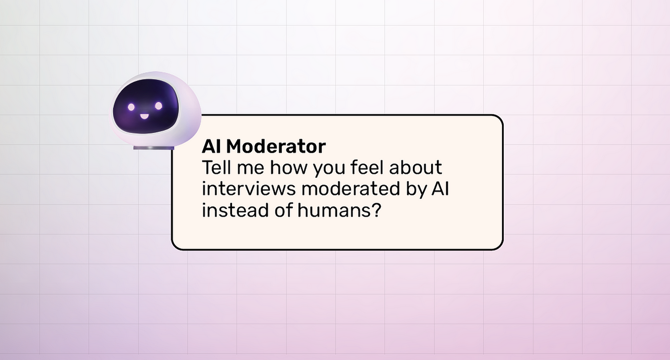UX Design
1M
359

Image Credit: UX Design
Opening our minds to AI-moderated research
- AI moderation for research sessions involves an AI moderator conducting qualitative research with a human respondent, sparking mixed reactions among researchers.
- Qualitative researchers often feel that AI moderation threatens their work and unique insights that come from human interaction.
- Despite initial skepticism, some researchers have found value in AI moderation, seeing it as a tool that can open doors to more opportunities, credibility, and strategic impact.
- Addressing common critiques, including AI's perceived limitations in probing for deeper motivations, emotional subtext, and building rapport, reveals nuances in the potential of AI moderators.
- Challenges such as AI's difficulty in interpreting body language and environmental context can be mitigated by using video functionality and advancements in emotional AI technology.
- AI moderation's ability to create a non-judgmental space may encourage respondents to be more candid in sharing information compared to human interviewers.
- The real value of AI moderation lies in its unique position between traditional qualitative depth and quantitative efficiency, offering a blend of speed, scale, and credibility.
- AI moderation can provide faster results, making qualitative research more accessible and strategic, as demonstrated by its ability to deliver data within tighter timelines and enable iterative refinement.
- The scalability of AI moderation can lead to a more comprehensive understanding through analyzing large datasets, supporting credibility and enriching insights with nuanced patterns.
- Embracing AI moderation as a new method rather than just a tool requires researchers to find their place with confidence and adapt to the evolving landscape of research practices.
Read Full Article
21 Likes
For uninterrupted reading, download the app